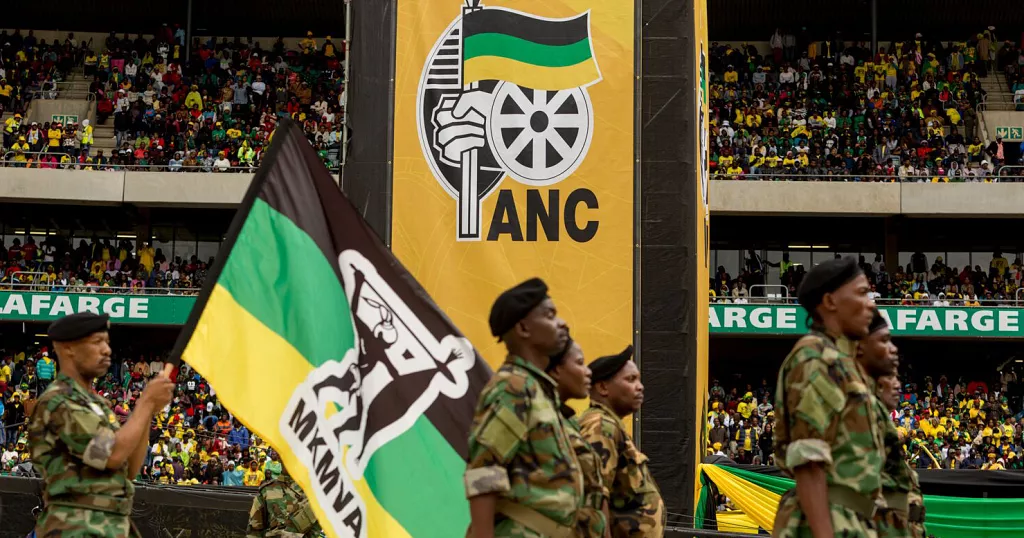ANC Faces Majority Challenge in South Africa – Survey Insights
As South Africa approaches its crucial national elections on May 29, approximately 27 million citizens have already registered to cast their votes. Notably, recent polls, though contested, consistently suggest that the ruling African National Congress (ANC) may lose its parliamentary majority for the first time since the end of apartheid three decades ago.
The ANC, under Nelson Mandela’s historic leadership, has always secured a majority in national elections. However, various polls indicate a potential dip below the 50% mark for the party. A survey conducted by the Johannesburg-based Brenthurst Foundation on March 8, based on a 66% turnout model from the 2019 general election, projects a significant decline for the ANC, with only 39% of the vote.
The survey, involving 1,506 registered voters, highlights concerns among respondents, with 53% blaming the ANC’s governance over the past three decades for the country’s issues, followed by 11% attributing problems to apartheid. South Africa’s most developed economy grapples with challenges like record unemployment, electricity crises leading to blackouts, and widespread voter mistrust amid corruption allegations.
Top concerns cited by respondents include unemployment (28%), corruption (27%), load shedding (17%), weak leadership (12%), and crime (11%). Opposition parties, particularly John Steenhuisen’s Democratic Alliance (DA) and the newly-founded MK Party endorsed by Jacob Zuma, appear to be gaining ground.
The MK Party, launched in December, is set to surpass the Economic Freedom Fighters (EFF), with a projected 13% of the vote. The DA has increased its share to 27%, while the EFF, led by Julius Malema, is experiencing a decline from 17% in October to 10% in the latest survey.
Notably, 33% of respondents believe both the DA and the ANC are the most effective governing parties, raising questions about the survey’s credibility. The EFF, critical of the poll, pointed out potential bias due to the Oppenheimer family’s reported funding of the DA, Action SA, and Rise Mzansi, suggesting a conflict of interest.
If the ANC loses its majority, coalition politics may become a reality at the national level, a significant shift from the party’s historical dominance. The outcome could impact President Cyril Ramaphosa’s ability to secure a second and final term, as South Africans vote for parties rather than individual presidential candidates. The upcoming elections will not only shape the national government but also determine the composition of provincial legislatures across the country.


















